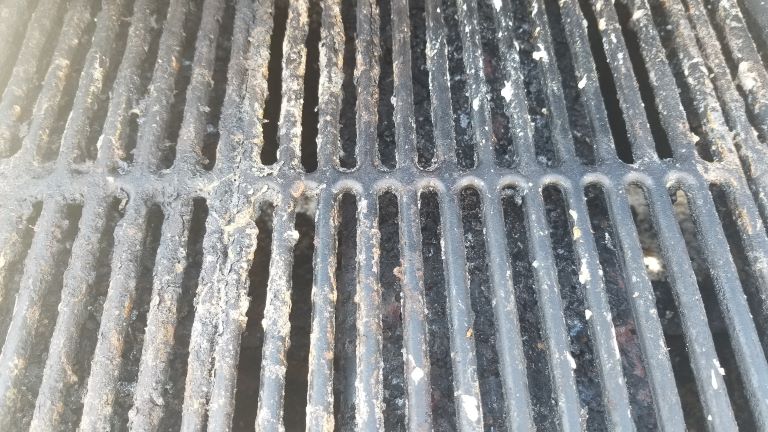Grill Grates Explained: Master Your Barbecue Game
Written By James Morgan
For many barbecue enthusiasts, the art of grilling is a beloved pastime, a culinary journey into the depths of flavors and aromas that only a grill can provide. And at the heart of this journey lies a crucial component - the grill grates. Understanding these essential tools can revolutionize your outdoor cooking experience. This article will delve into the world of grill grates, offering a comprehensive look at their purpose, types, maintenance, and impact on your barbecue outcomes.
The Role of Grill Grates in Barbecuing
Grill grates are more than just the surface your food sits on while cooking. They are vital in heat distribution, creating those iconic sear marks, and ultimately affecting the flavor and texture of your grilled dishes. When we talk about grill grates explained, its essential to understand how they influence the entire grilling process. The right set of grates can enhance the efficiency of your grill, leading to better-cooked food.
Types of Grill Grates
Choosing the right grill grates can be a daunting task, given the variety available in the market. Heres a breakdown of the most common types:
- Cast Iron Grates: Known for their excellent heat retention and ability to create perfect sear marks, cast iron grates are a favorite among seasoned grillers. However, they require regular maintenance to prevent rusting.
- Stainless Steel Grates: These are durable and resistant to rust, making them a low-maintenance option. They may not retain heat as well as cast iron but are more than adequate for most grilling needs.
- Porcelain-Coated Grates: Available in both cast iron and steel, these grates offer the benefits of their base material with an added layer of protection. The coating helps prevent sticking and rust but can chip over time.
For a deeper dive into choosing the right grill grates, check out this guide on selecting grill grates.
Maintenance Tips for Longevity
Proper maintenance of your grill grates is essential to ensure they last and perform well. Here are some tips to keep your grates in top condition:
- Regular Cleaning: After each use, clean the grates to remove food particles and grease. A wire brush is typically used for this purpose, but ensure its appropriate for your type of grates to avoid damage. For more detailed cleaning tips, visit how to clean grill grates.
- Seasoning: Especially for cast iron grates, seasoning is crucial. Regularly oiling your grates can prevent rust and improve their non-stick properties. Learn more about seasoning your grates here.
- Storage: When not in use, store your grill grates in a dry place to prevent rust and other damage. Covering your grill can also protect the grates from the elements.
Impact of Grill Grates on Flavor and Cooking
The material and condition of your grill grates can significantly influence the flavor and texture of your food. Different materials distribute heat differently, affecting cooking times and outcomes. For instance, cast iron grates, with their superior heat retention, can lock in juices and create a delightful sear, enhancing the natural flavors of meats and vegetables.
Moreover, clean grates prevent the transfer of unwanted flavors from previous meals, ensuring each dish tastes just as it should. This aspect of grill maintenance is often overlooked, yet its vital for achieving the best results.
Innovations in Grill Grate Design
The world of grill grates has not remained static. Recent innovations have introduced features aimed at enhancing the grilling experience. For instance, GrillGrates offer a unique interlocking panel system that amplifies heat and reduces flare-ups, resulting in more efficient cooking.
These advancements are not just about aesthetics or convenience but are designed to improve the performance and versatility of your grill. As the barbecue world continues to evolve, staying informed about these developments can help you make the most of your grilling adventures.

FAQs About Grill Grates
1. How often should I replace my grill grates?
Grill grates generally last several years with proper care. However, if you notice excessive rust, warping, or significant wear, it might be time to replace them.
2. Can I use soap to clean my grill grates?
While some people use mild soap for cleaning, its often recommended to use just hot water and a brush to preserve the seasoning on cast iron and avoid any soap residues affecting the taste of your food.
3. Are there any eco-friendly options for grill grates?
Yes, stainless steel and porcelain-coated grates are often considered more environmentally friendly due to their durability and longer lifespan compared to other materials.
To explore more about grill grates and barbecue tips, visit the materials used in grill grates.
In conclusion, understanding grill grates is crucial for any barbecue enthusiast aiming to elevate their grilling skills. The right knowledge and care can transform your outdoor cooking experiences, ensuring delicious results every time you fire up the grill. Happy grilling!



